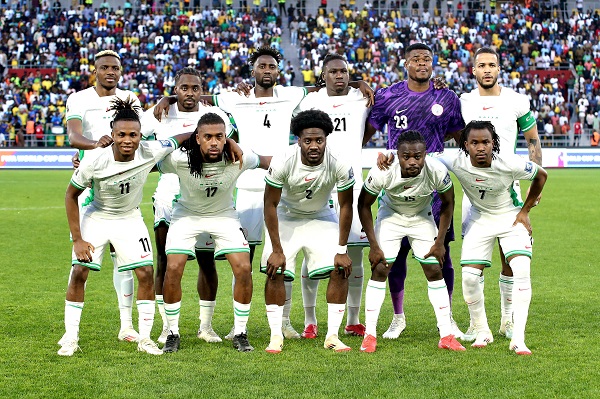Nigeria’s hopes of qualifying for the 2026 FIFA World Cup have been reignited following the Confederation of African Football’s (CAF) decision to revise the qualification criteria after Eritrea’s withdrawal from the competition.
The development, though administrative, could have significant implications for the Super Eagles as they fight to keep their World Cup dream alive.
Eritrea’s exit from the qualifiers left Group E with only five teams instead of six, creating an imbalance across the groups.
While some groups continue to have six teams, others now have fewer, forcing CAF and FIFA to consider adjustments that would ensure fairness in comparing results across all groups.
According to reports, CAF may adopt a method previously used in international qualifiers, excluding results against the bottom-placed teams in groups with six teams when calculating the best runners-up.
This approach would level the playing field for groups affected by the withdrawal, allowing fairer assessment of second-placed teams.
For Nigeria, currently sitting third in Group C after eight matches, this revision offers a much-needed lifeline. With chances of topping the group slim, the Super Eagles now have a renewed opportunity to qualify through the runner-up route. If they finish second and rank among the four best second-placed teams across the continent, Nigeria could still make it to the next stage of the qualification process.
The implication is clear that Nigeria must win the remaining fixtures to stay in contention.
While CAF and FIFA have yet to release an official statement confirming the exact method for ranking runners-up, the broader qualification structure remains the same: nine group winners will qualify automatically, while the four best second-placed teams advance to the CAF playoffs, with a possible route to the inter-confederation playoffs.

